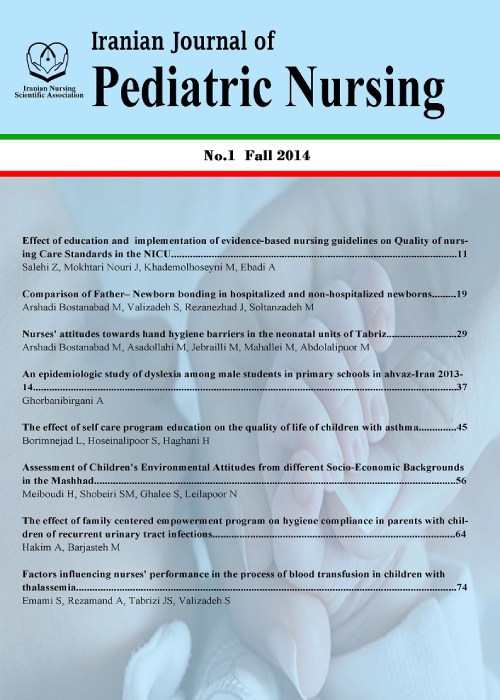Effect of Child-Rearing Education on the Formation of Self-Restraint on Parenting Self-Efficacy in Mothers
Parenting is a major factor in the development of children, which is inappropriate alongside family conflicts and lacks of warm and positive relationship with parents a strong prediction to create and stay. Behavioral problems are in children. On the other hand, the issue of self-restraint in childbearing and raising it at an early age is very important that mothers should receive the necessary training and raise their children. In this research, self-efficacy of the mother refers to the beliefs and differences of a mother from her abilities to regulate and execute a series of child-rearing tasks. The purpose of this study was to determine the effectiveness of positive parenting education in the development of self-restraint in children and its effect on the effectiveness of mothers of primary school children.
The quasi-experimental research is a pretest-posttest with control group The sample of the study consisted of 30 mothers of elementary school children (second grade elementary schools) in Yazd province in the academic year of 2017-2018, which were matched based on age and gender characteristics and were randomly assigned to experimental and control groups Both groups completed the parental self-efficacy and perceived self-control questionnaire in the pre-test. The members of the experimental group received a positive psychological approach for 3 weeks, 2 weeks each week and each session for 2 hours in the childchr('39')s educational program, and finally, after the intervention, both questionnaires were divided into two experimental and control groups Post-test was carried out.
The results of single-variable covariance analysis showed that the F (F1, 27=2.44, P=0.16) for independent variable (group) effect on self-restraint score was not statistically significant. As a result, this research hypothesis is rejected. That is, teaching the principles of parenting with the positive psychological approach does not improve the restraint of the children, but the results of the single-variable covariance analysis show that the F (F1,27=35.31, P=0.000002) for the independent variable (group) effect on the score Self-efficacy of parental parenting has been statistically significant.
That is, the teaching of parenting principles with positive psychological approach improves the parenting self-efficacy of primary school children, therefore, positive psychology is a more effective method for increasing parent self-efficacy and can be used.
- حق عضویت دریافتی صرف حمایت از نشریات عضو و نگهداری، تکمیل و توسعه مگیران میشود.
- پرداخت حق اشتراک و دانلود مقالات اجازه بازنشر آن در سایر رسانههای چاپی و دیجیتال را به کاربر نمیدهد.



